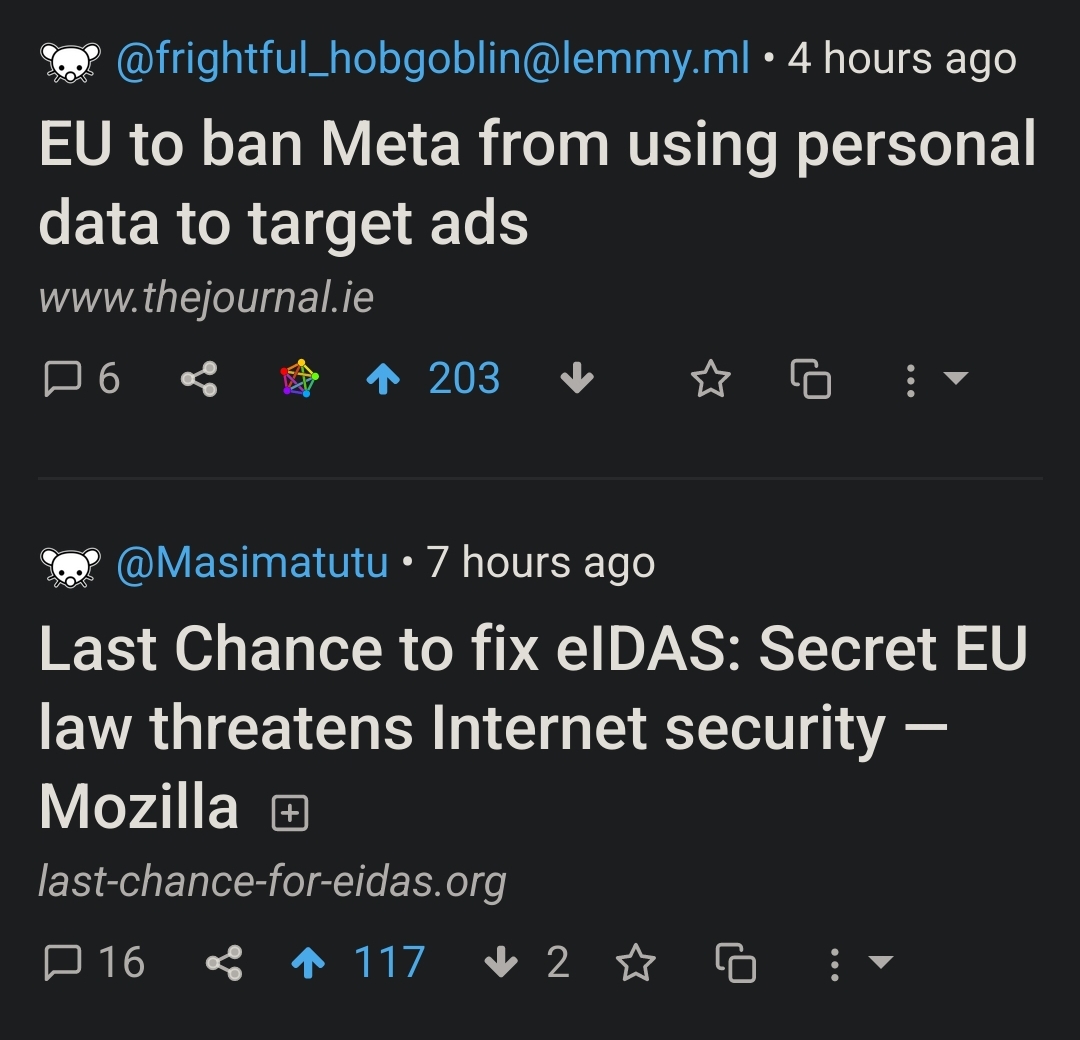this post was submitted on 02 Nov 2023
347 points (98.3% liked)
Europe
8484 readers
1 users here now
News/Interesting Stories/Beautiful Pictures from Europe 🇪🇺
(Current banner: Thunder mountain, Germany, 🇩🇪 )
Feel free to post submissions for banner pictures
Rules
(This list is obviously incomplete, but it will get expanded when necessary)
- Be nice to each other (e.g. No direct insults against each other);
- No racism, antisemitism, dehumanisation of minorities or glorification of National Socialism allowed;
- No posts linking to mis-information funded by foreign states or billionaires.
Also check out !yurop@lemm.ee
founded 2 years ago
MODERATORS

